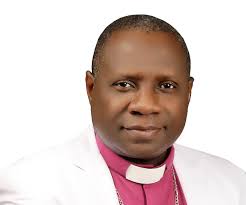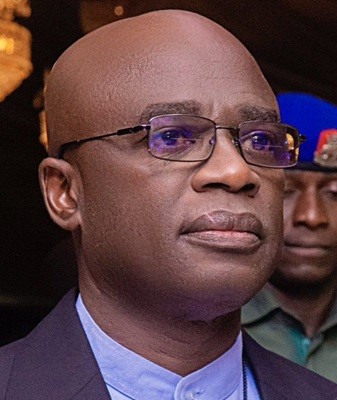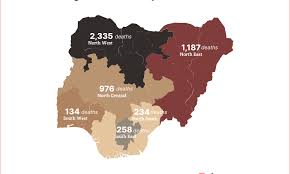Arab-Islamic Summit: President Tinubu’s Participation Seen as a Disturbing Signal – Christian Elders Forum
Our Correspondent
The National Christian Elders Forum (NCEF) has expressed concerns regarding President Bola Tinubu’s participation in the November 2024 Arab-Islamic Summit in Saudi Arabia.
They described his involvement as “a disturbing signal” that misrepresents Nigeria’s constitutional status.
The NCEF voiced its worries in a document titled “State of the Nation,” signed by its Chairman, Dr. Samuel Danjuma Gani.
The organization said it is particularly troubled that the government appears to be exacerbating religious divides rather than promoting the country’s secularity.
The elders emphasized that Nigeria remains a “deeply divided country,” where various non-state actors are putting pressure on national security.
While they commended the efforts of the military and other security units, NCEF highlighted that the issue of religious divide was still a significant challenge and that “religious discrimination” has not been fully addressed by the government.
They pointed out that, in many parts of northern Nigeria, violations of citizens’ rights to their religious beliefs remain commonplace.
The Christian elders noted that the secularity of the Nigerian State is “openly challenged by some relentless religious extremists.”
The NCEF urged the nation’s leaders to exercise caution to ensure that the state’s neutrality on religious issues is not compromised.
They referenced Section 10 and Section 38(1) of the Constitution, emphasizing that the government should not act as an “agent provocateur” inflaming religious crises in the country.
Addressing what they termed “Hunger in the Land,” the NCEF expressed deep concern over the hardships Nigerians are facing due to hyperinflation. They attributed the current distressing conditions to several factors, including what they called “dysfunctional government policies, unbridled corruption among officials, and the persistent attacks on farmers by religious insurgents.”

The Forum called on the Federal Government to take decisive steps to ensure the security and welfare of Nigerians, asserting that the government is accountable for resolving these crises.
They cited Section 14(2)(b) of the Constitution, which states that “the security and welfare of the people shall be the primary purpose of government.”
The NCEF emphasised the suffering of the Nigerian populace and called for immediate action against the extortion of money by security agents from those transporting food across the country.
They explained that various security agents establish checkpoints on major roads, imposing illegal levies that contribute to rising food prices, hence, they insisted that these extortion checkpoints must be dismantled.
Regarding fuel prices, the NCEF noted that any increase in oil prices, a crucial component of the nation’s economy, has widespread repercussions across all sectors.
They pointed out that the government had previously claimed to subsidize local fuel consumption, yet credible reports indicate that this subsidy regime is plagued by corruption, leading some analysts to advocate for its removal.
NCEF noted that while they agree that corruption should be curbed, they asserted that the effects of government policies on the populace warrant greater attention.
The elder also cautioned against the sudden removal of fuel subsidies without adequate mitigating plans, noting that such a strategy was akin to “cutting the head to stop the headache.”
The organization added that they believe that combating corruption within the subsidy regime was preferable to subjecting citizens to unnecessary suffering.
They drew parallels to developed nations that implement various subsidy programs for their citizens.
Referring to past fuel price increases, the NCEF recalled the slogan from 2012: “Kill Corruption; Do Not Kill Nigerians,” stating that this call was even more relevant today.
They pointed out that the Tinubu administration removed fuel subsidies on its first day in office, causing fuel prices to surge from N195 per litre to N540, and then further rise to N617, while currently hovering around N1,000 per litre.
According to NCEF, the government was struggling to pay a minimum wage of N70,000 per month, which they opined was insufficient for citizens trying to fill their vehicle tanks.
NCEF called on President Bola Tinubu, who also serves as Minister of Petroleum, to reassess the fuel pricing regime noting that the government does not yet have effective control over fuel prices, and the balance between citizens’ welfare and government policy has yet to be achieved.
The elders reminded the President of the imperative to prioritize citizens’ welfare, arguing that every government policy should aim to meet the needs of the people.






Post Comment